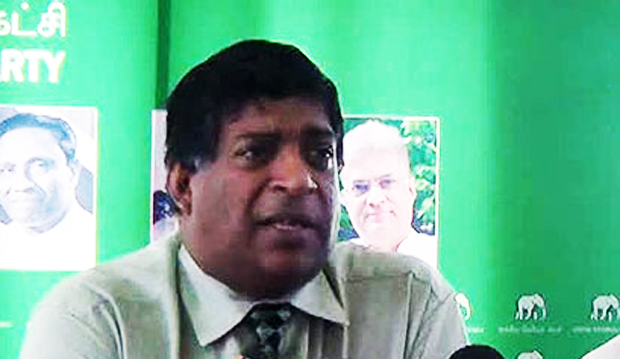July, 30, 2015

Finance Minister Ravi Karunanayake is planning the Budget for 2016 to achieve a five-pronged main target.
Accordingly, the under mentioned objectives would be the main thrust of the upcoming budget:
• Reduce the budget deficit to 5.5% of Gross National Production
• To maintain the state investment level between 6 – 8% of the GDP
• Encourage to make private sector investment between 22 – 24% of the GDP
• Maintain the total investment level of the economy at 30% of the GDP
•Achieve an economic growth beyond 8% in the medium term framework of 2016-2018
In this context the Ministry of Finance is in the process of formulating the annual national budget for 2016 within the Medium Term Budgetary Framework for 2016-2018 in consultation with the relevant line Ministries.
It has been observed that there is a significant amount of carried forward liabilities settled at the following budgetary year which has been a practice for decades. Due to this reason, the targets of development programmes have not been reached on time and as a result allocated resources for the year are not sufficient to meet the requirement of the budget year. Also with these developments, cash flow management of the Treasury has become extremely difficult. Therefore, it has been decided to introduce Zero Based Budgeting method as a tool of budget preparation and implementation from 2016 onwards. With this method it is expected to manage the public expenditure prudently.
Accordingly, the Department of National Budget would issue a Budget Call 2016 including guidelines of preparation of this year’s budget within the targets of Medium Term Budgetary Framework. Furthermore, all spending agencies are requested to prepare their estimate for 2016 under the Medium Term Budgetary Framework by using the zero based budgeting method in which reviewing missions, objectives and functions of Ministries/ Departments/ Institutions and assessing the relevance of all activities being carried out so far, in the current context are considered integral elements. An Annual Budget will be prepared with a starting point of “0” and the expenditure would be limited to approve budgetary provisions. Accordingly, any issue associated with carry forward expenditure should not arise. Resource allocation to the Ministries is based on the sectoral ceilings. Accordingly, the consultation process with the spending agencies would commence in the first week of August 2015.
Video Story